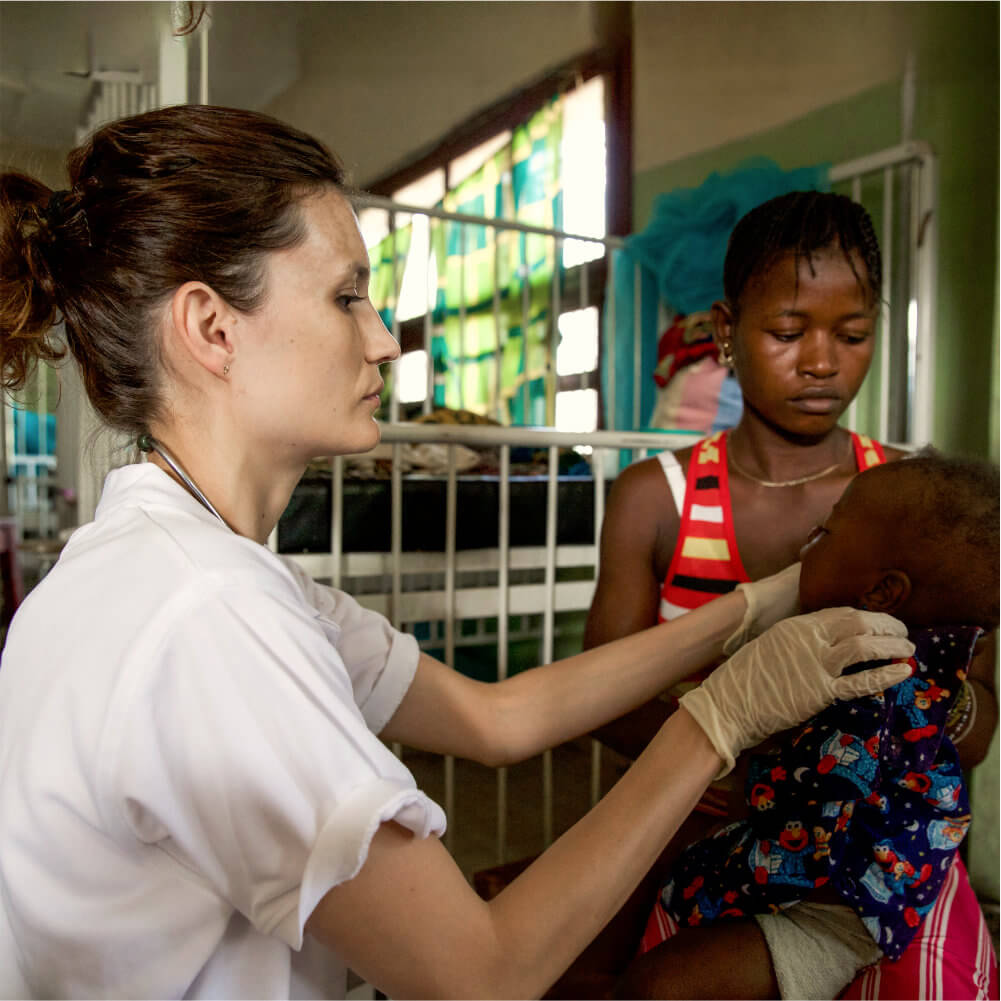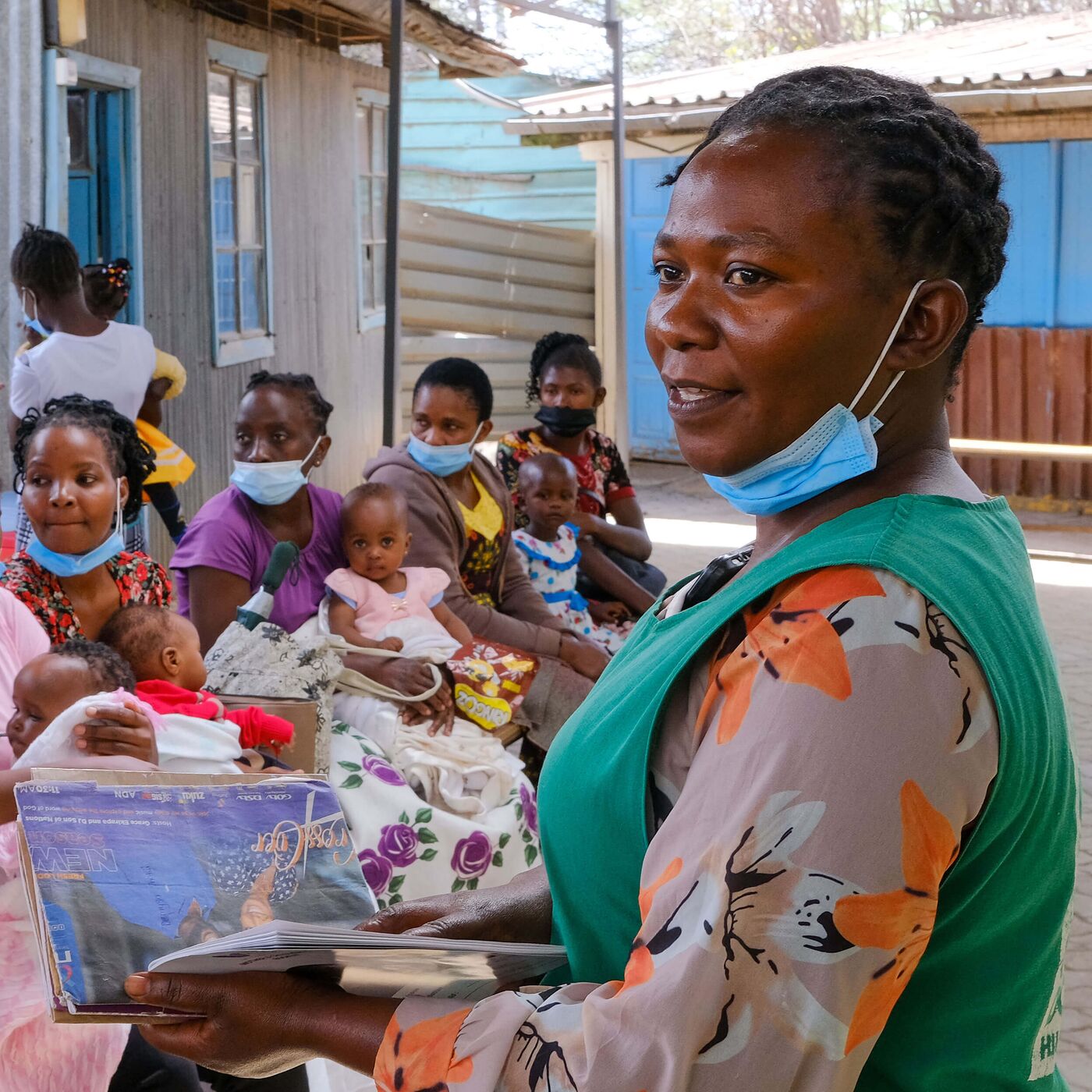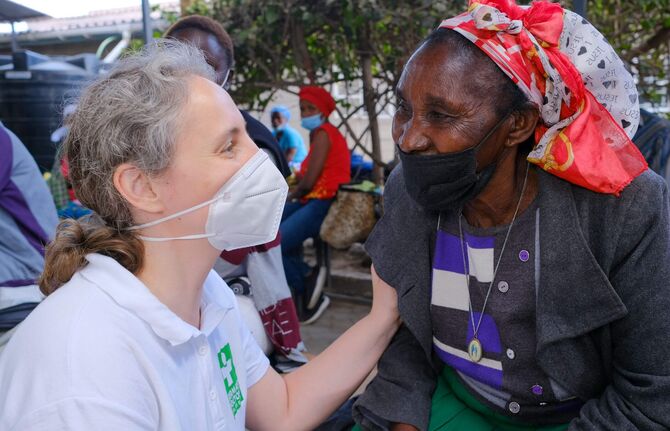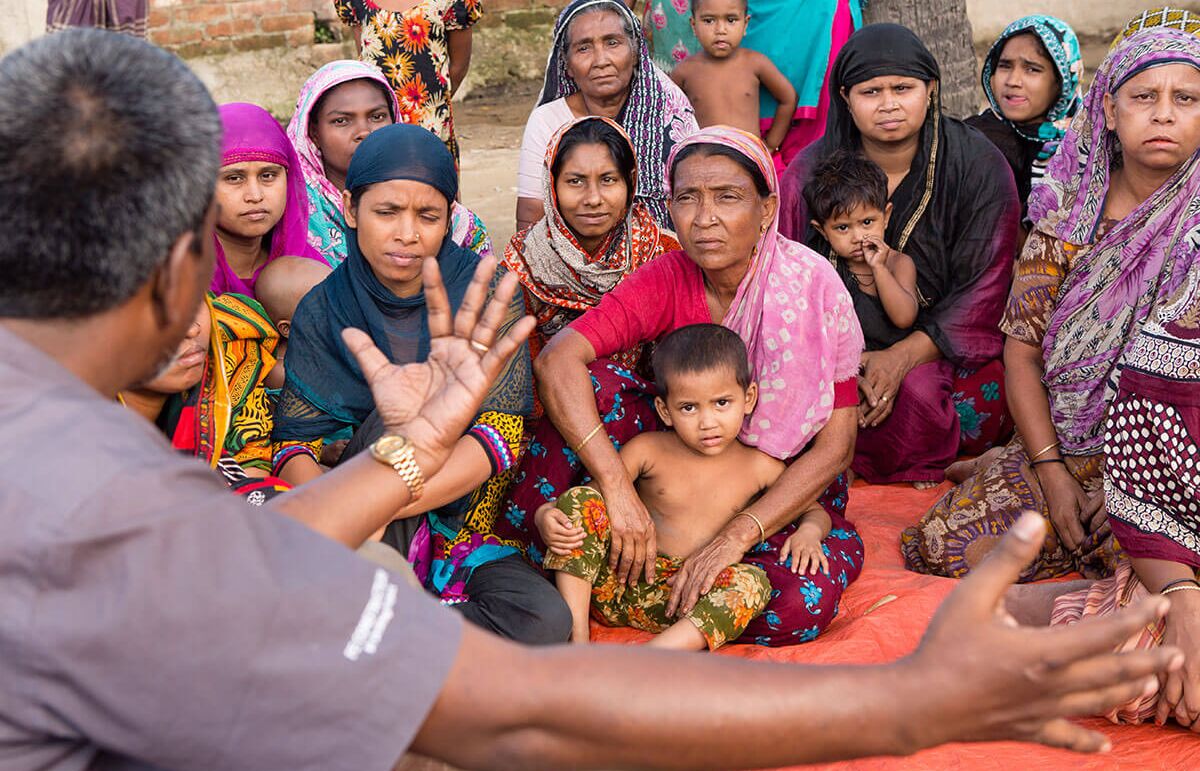




What exactly does helping people to help themselves mean?
Helping disadvantaged people to help themselves means supporting them in their own initiatives and endeavours so that they are better able to manage their problems and daily challenges. The long-term goal is to improve living conditions in a tangible and sustainable way.
This also means involving people in all decisions and activities from the start. The assumption behind this: Every human being wants and is able to improve his or her own life and environment - provided he or she is offered appropriate social opportunities. Of course, this also requires personal initiative and responsibility.
Swiss Doctors' projects therefore aim to encourage people to actively and sustainably improve their lives. The aim of our work is to sustainably improve the mental and physical health of disadvantaged people by giving them access to healthcare and by training and advising them in a way that external help becomes unnecessary in the long term. To achieve this, we work together to define the goals, plan the activities and implement them. By involving our partners in all decisions and activities, they bear equal responsibility - both for successes and failures.
Helping people to help themselves in development cooperation
The joint endeavour of industrialised and developing countries to achieve long-term and sustainable change in people's general living conditions always follows the basic principle of helping people to help themselves. This is therefore the central concept in development cooperation and describes exactly what it is all about. Cooperation only leads to lasting change if it is carried out with respect and on eye-level.
Why is helping people to help themselves so important?
Helping people to help themselves is the way to make outside help unnecessary and to enable people to lead a self-determined, free life in dignity and justice. By teaching people to solve problems autonomously and by their own power, dependency on external people, institutions and companies is reduced. That`s the only way how the local situation can be improved in a lasting and sustainable way.

Helping people to help themselves in developing countries - how Swiss Doctors help
As a medical aid organisation, we are active all over the world and help people to help themselves in Africa, India and other developing countries. This means in detail: our volunteer Swiss Doctors train and advise local employees and partners on the ground in order to ensure and sustainably improve medical care in the respective project
All our projects go through four phases, where the individual phases do not necessarily follow each other, but are interlinked:
- aid: alleviating need on the ground
- training: specialised medical training with local partners
- counselling: development of non-medical skills
- handing over: transferring the project into local hands
Sometimes it makes sense to train or advise local people even before Swiss Doctors help in the region - and sometimes we continue supporting our partners after the handover, for example in the form of counselling or training. The exact process is project-specific, but always has the same goal: to enable people to help themselves.
We therefore focus on the final phase right from the start: handing over the project. To achieve this, partners and local structures must be strengthened in a way that the health care of local people is guaranteed even without outside help. This is exactly where we come into play
.

Supporting families
Health can be learnt to a certain extent. In our training courses, parents are involved in preparing meals and learn how to provide a balanced diet even with limited resources. Families are also trained in hygiene so that illnesses can be avoided. Finance a training workshop for a family with 5 francs!
Building sustainable structures in the healthcare systems
To have a sustainable impact universal access to healthcare must be guaranteed. In many regions, this means that medical infrastructure must be improved. The distance to the next hospital is often too long to be treated safely in an emergency.
In our project on Mindoro, a Philippine peninsula, we have therefore set up a medical centre: In the ‘Half Way Home’, Mangyan women can find accommodation halfway before giving birth. There, it is still common for women to deliver traditionally with the help of healers in their mud huts - without trained medical staff.

Strengthening the structures in the Athi River project (Nairobi) is also a main concern of Swiss Doctors. The problem before the project began: less than 30 per cent of the inhabitants of Athi River have health insurance - and private medical facilities are in most cases beyond their financial means. In the nearest state facility, there are always bottlenecks in the supply of medicines.
In our project in Srimangal (Bangladesh), we not only train health workers, but also provide a WASH infrastructure consisting of 50 tube wells and community latrines in order to sustainably improve local health structures. As well as being heavily dependent on the owners of the tea plantations and having to do hard physical labour, the local people are also exposed to lack of medical care and poor hygiene conditions. We want to change this with our aid project.
With your donation, you will help us to further strengthen the local structures in a sustainable way - and give people the chance to lead a self-determined life.

Educating patients
Teaching young mothers how to make nutritious porridge from regional ingredients or drawing attention to the lack of equal rights with workshops and awareness events: Advising and educating local people is just as important as a functioning health system and trained specialists. After all, many diseases and problems can be prevented through people's awareness and knowledge.
Activities generating income are also sometimes part of our projects in order to reduce people's dependency as far as possible.
When helping people to help themselves reaches its limits
Of course, there are situations in which people require our help immediately- and help to self-help becomes secondary for the moment. If such an emergency arises, we provide immediate emergency aid to help people on the ground quickly. Because an acute crisis requires acute help on short call.
More treatment priorities
Treatment priorities
Which diseases are particularly common in developing countries? Find out more about our treatment priorities here!
Fighting child mortality
Find out what we are doing to reduce child and maternal mortality, especially in Africa.
Female genital mutilation (FGM)
Although many countries already have criminal laws against genital mutilation, numerous girls are genitally mutilated every year.








